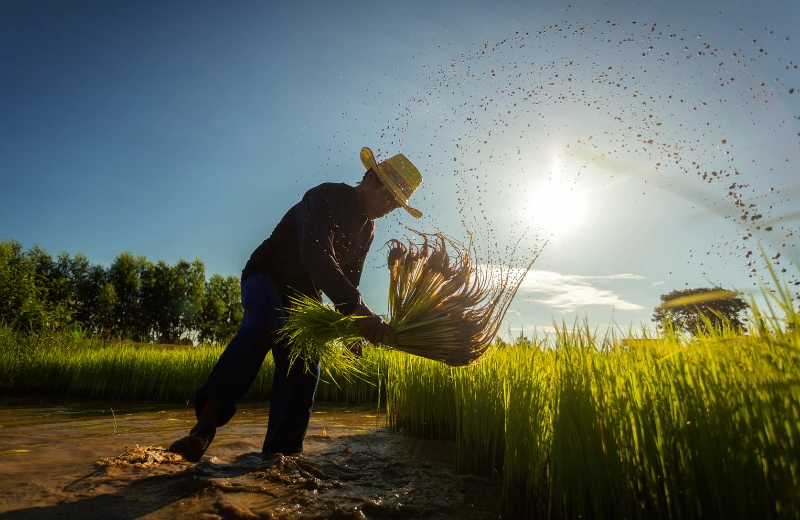Negotiating a farming business tenancy is a crucial step for both tenants and landowners. Whether you are a farmer looking to lease land or a landowner seeking a tenant, the terms you agree upon will shape the success of your farming enterprise. A well-negotiated farming business tenancy can create a solid foundation for a profitable farming operation, while a poorly negotiated one may lead to disputes and financial strain.
In this article, we will discuss five essential tips for negotiating a farming business tenancy. We will focus on practical advice to ensure both tenants and landowners get the best deal. By understanding key aspects such as rent, lease duration, maintenance responsibilities, and dispute resolution clauses, you can enter into a tenancy that benefits everyone involved.
Farming Business Tenancy
Be Clear About Rent
Rent is one of the most important aspects of a farming business tenancy, and it is crucial to negotiate it carefully. Both tenants and landowners should take time to assess the value of the land and agree on a fair rent that reflects its worth and potential productivity.
For Tenants:
As a tenant, you should ensure the rent is affordable and reasonable for the type of farming you plan to undertake. Before agreeing to a figure, research comparable farmland in the area to understand current rent rates. If possible, negotiate for flexibility, such as lower rent in the early years of the tenancy while your farm gets established. In many cases, rents are reviewed periodically, so consider including terms for future rent reviews to prevent steep increases.
For Landowners:
Landowners should also assess the potential productivity of their land and ensure the rent reflects this. However, setting the rent too high could deter good tenants. A successful farming business benefits both parties, as it ensures the tenant can maintain their rent payments while the land is put to productive use. Consider negotiating an agreement where rent adjusts over time based on market conditions or farm performance.
Set the Right Lease Duration
Another critical factor in a farming business tenancy is the length of the lease or lease duration. This should be negotiated carefully, as it affects the security of both the tenant and the landowner.
For Tenants:
Farmers need time to plan, grow crops, raise livestock, and build their businesses. Short-term leases may not provide enough security for long-term investment in the land, so consider negotiating for a longer lease duration. A lease that spans multiple years gives tenants the confidence to invest in improving the land and their farming operations. Additionally, look for options that allow for lease renewals, which can provide even more stability in the future.
For Landowners:
Landowners should balance offering a lease long enough to attract responsible tenants while maintaining the flexibility to review the tenancy as needed. Short leases might seem advantageous because they offer more frequent opportunities to renegotiate terms or end the tenancy. However, frequent tenant turnover could lead to disruption and might not provide the stability needed to maintain the land’s productivity. A longer lease may also attract more experienced or committed farmers.
Define Maintenance Responsibilities
Maintenance of the land and its infrastructure is a critical component of a farming business tenancy, and explicit negotiation is vital in this area. Without proper agreements in place, disputes can arise over who is responsible for maintaining various aspects of the property.
For Tenants:
Tenants should ensure they have a clear understanding of what maintenance tasks are expected of them. This could include routine upkeep like keeping fences in good repair, maintaining access roads, or even ensuring water systems remain functional. Make sure these responsibilities are spelled out in the tenancy agreement to avoid any misunderstandings later on.
For Landowners:
As the owner, it is equally important to define what responsibilities you retain, particularly for more extensive repairs or improvements. While tenants may be expected to handle day-to-day maintenance, larger tasks such as replacing old equipment, repairing structural damage, or upgrading irrigation systems may fall on the landowner. Be clear about who is responsible for specific tasks, and consider adding clauses that require regular inspections to ensure the property is well-maintained.
Address Dispute Resolution Clauses
Even the best-negotiated farming business tenancy can face challenges, so it’s essential to have a clear process in place for resolving disputes. Negotiating dispute resolution clauses upfront can prevent future conflicts from escalating into costly legal battles.
For Tenants:
As a tenant, you should ensure that any dispute resolution clause is fair and accessible. A well-negotiated clause could include steps like mediation or arbitration before legal action is taken. These alternatives are often quicker and less expensive than going to court. Make sure both parties agree on how disputes will be handled, whether it’s disagreements over rent, maintenance, or other aspects of the tenancy.
For Landowners:
Landowners should also ensure that any dispute resolution process is straightforward and efficient. You want to avoid drawn-out legal processes that could leave the land unused and unproductive. By agreeing to a straightforward, step-by-step process for resolving disputes, both parties can protect their interests while maintaining a positive working relationship. Make sure the clause covers a range of possible disputes, including rent adjustments, maintenance issues, and lease renewals.
Consider Flexibility for Future Adjustments
Farming is an unpredictable business, with factors such as weather, market prices, and economic conditions all impacting profitability. Because of this, a farming business tenancy should have built-in flexibility to allow for adjustments over time. This ensures that the arrangement remains fair and beneficial for both tenants and landowners as conditions change.
For Tenants:
As a tenant, consider negotiating flexibility in areas like rent adjustments, lease renewals, and even maintenance responsibilities. For instance, if you’re starting a new farming venture, you may want to include terms that allow you to renegotiate rent after the first few years once your business is more established. This flexibility can help you adapt to unforeseen challenges without risking the viability of your business.
For Landowners:
Landowners should also consider including flexibility in the tenancy agreement. For example, if the value of the land increases significantly over time, you may want the option to review and adjust rent accordingly. Flexibility in the lease terms can help maintain the land’s productivity and ensure that both parties benefit from the arrangement.
Conclusion
Negotiating a farming business tenancy requires careful consideration and clear communication between the tenant and the landowner. By focusing on critical areas such as rent, lease duration, maintenance responsibilities, and dispute resolution, both parties can ensure a fair and productive tenancy. It’s essential to approach these negotiations with flexibility in mind, as the agricultural industry is constantly changing, and both parties should be prepared to adapt to new conditions.
By following these five essential tips, tenants can secure a stable foundation for their farming business, while landowners can protect their land and ensure it remains productive. Ultimately, a well-negotiated farming business tenancy benefits everyone involved, fostering a positive and long-lasting partnership.

